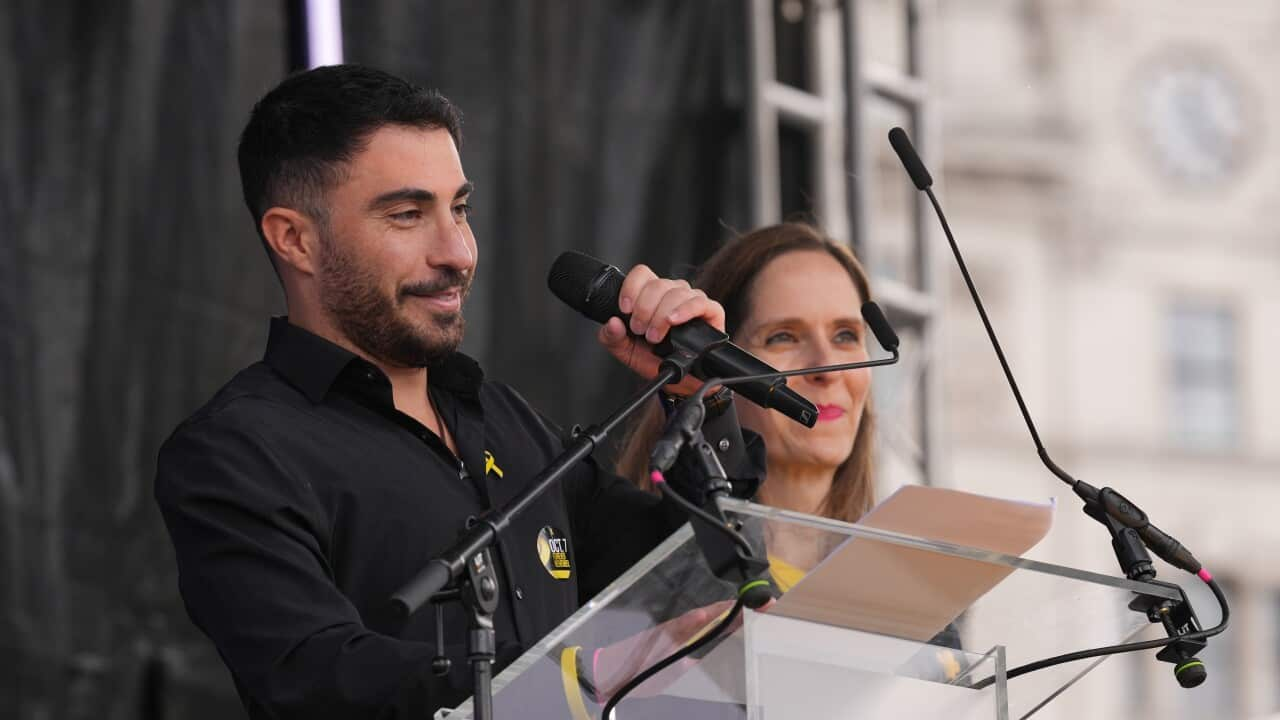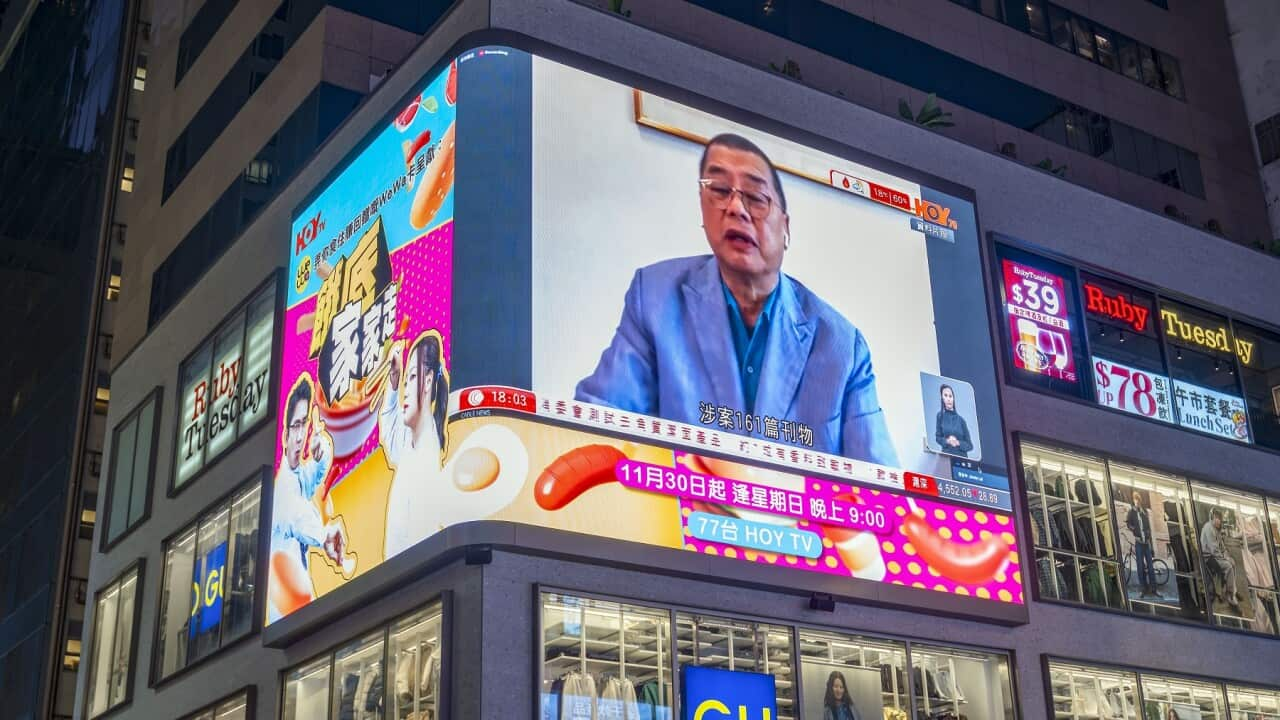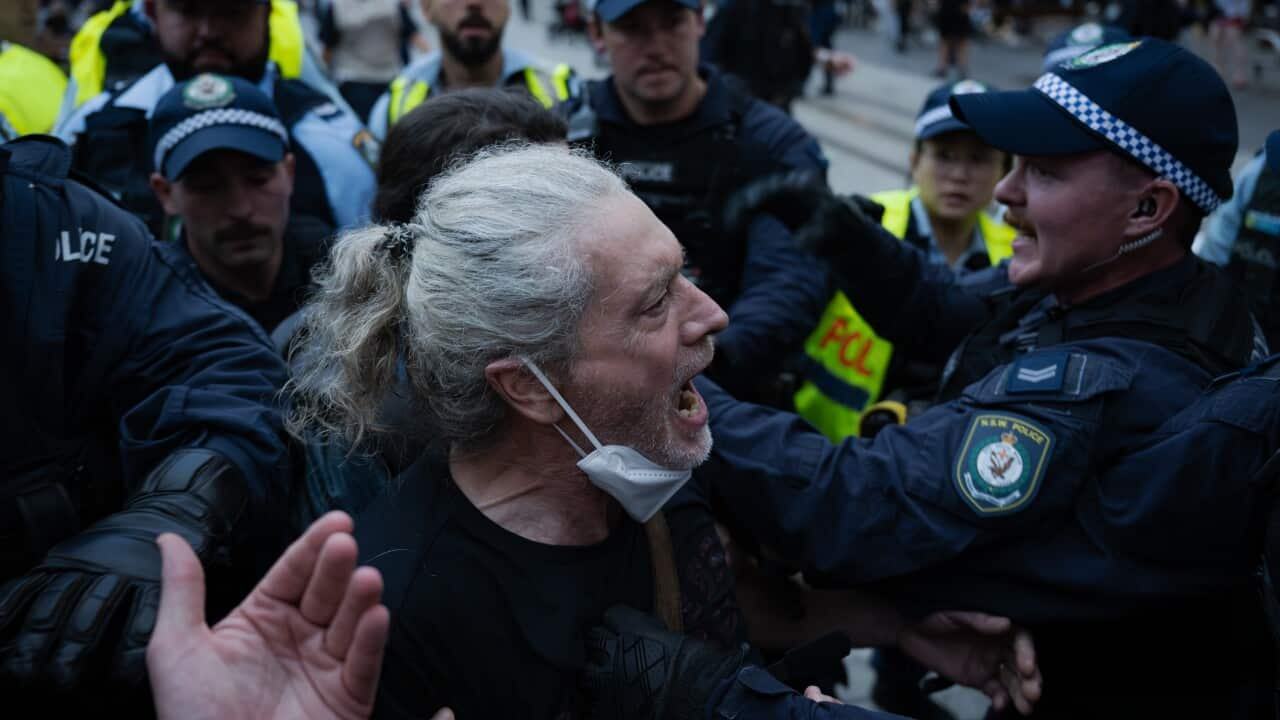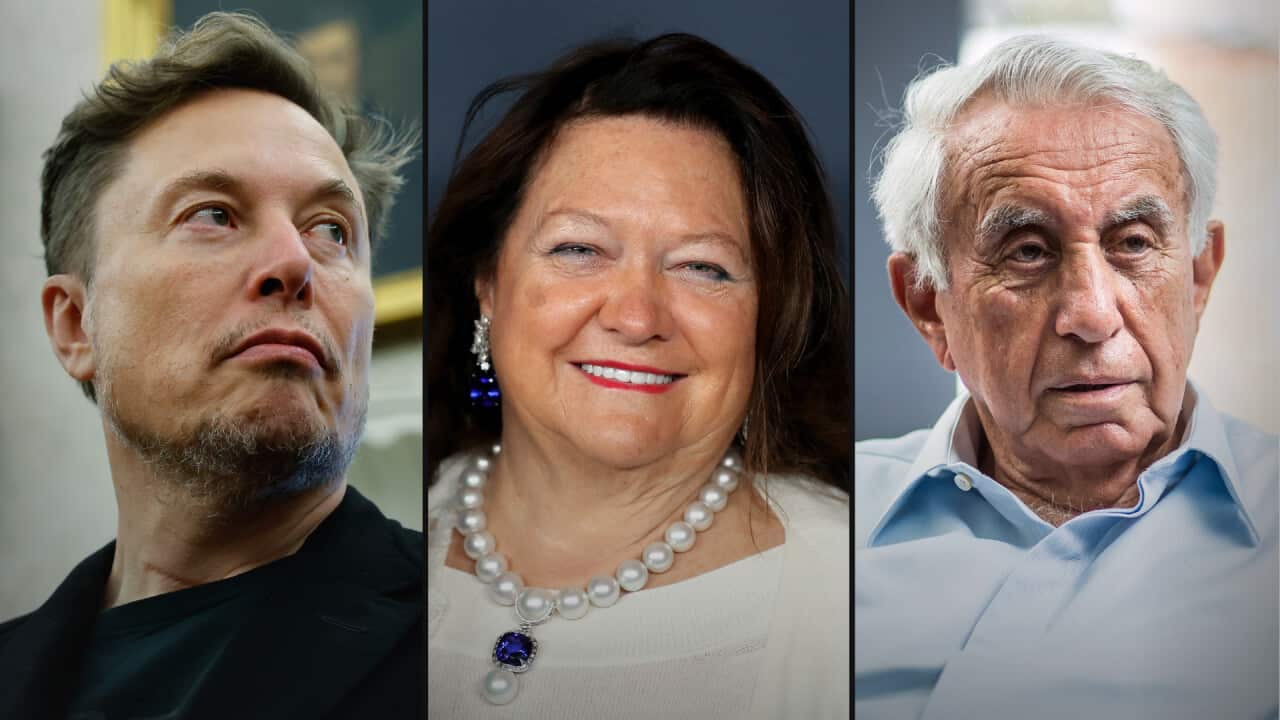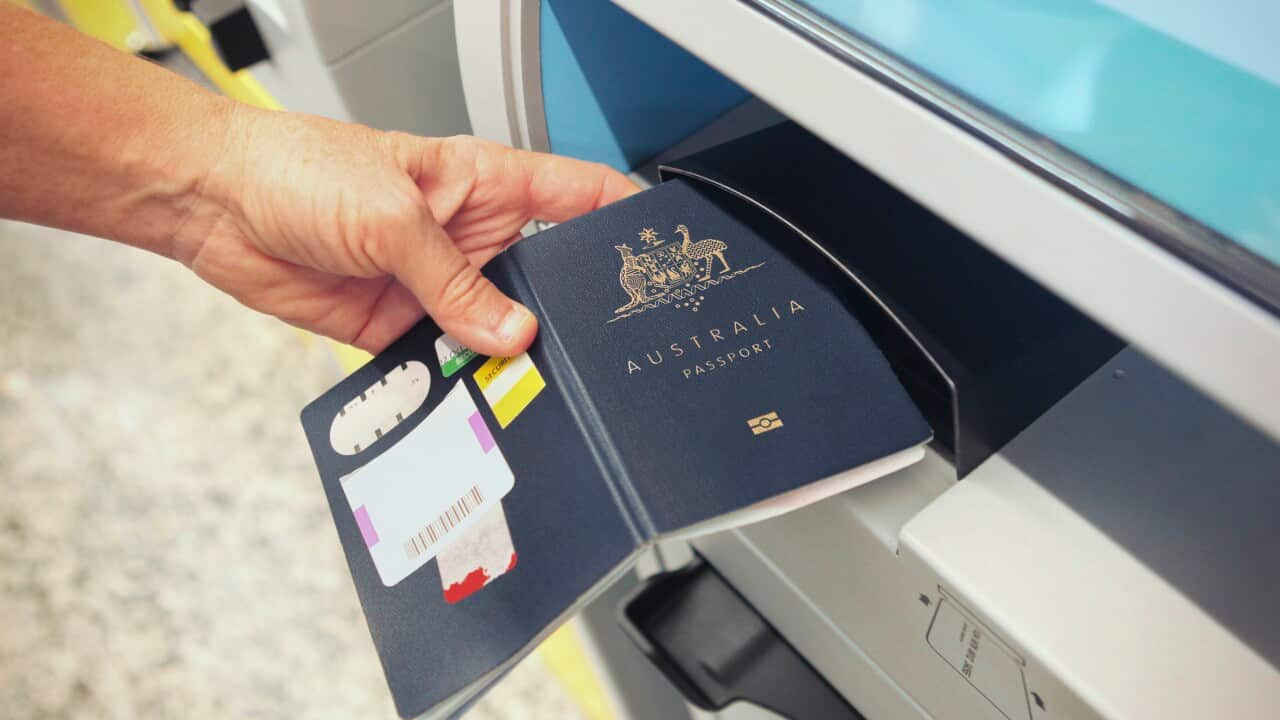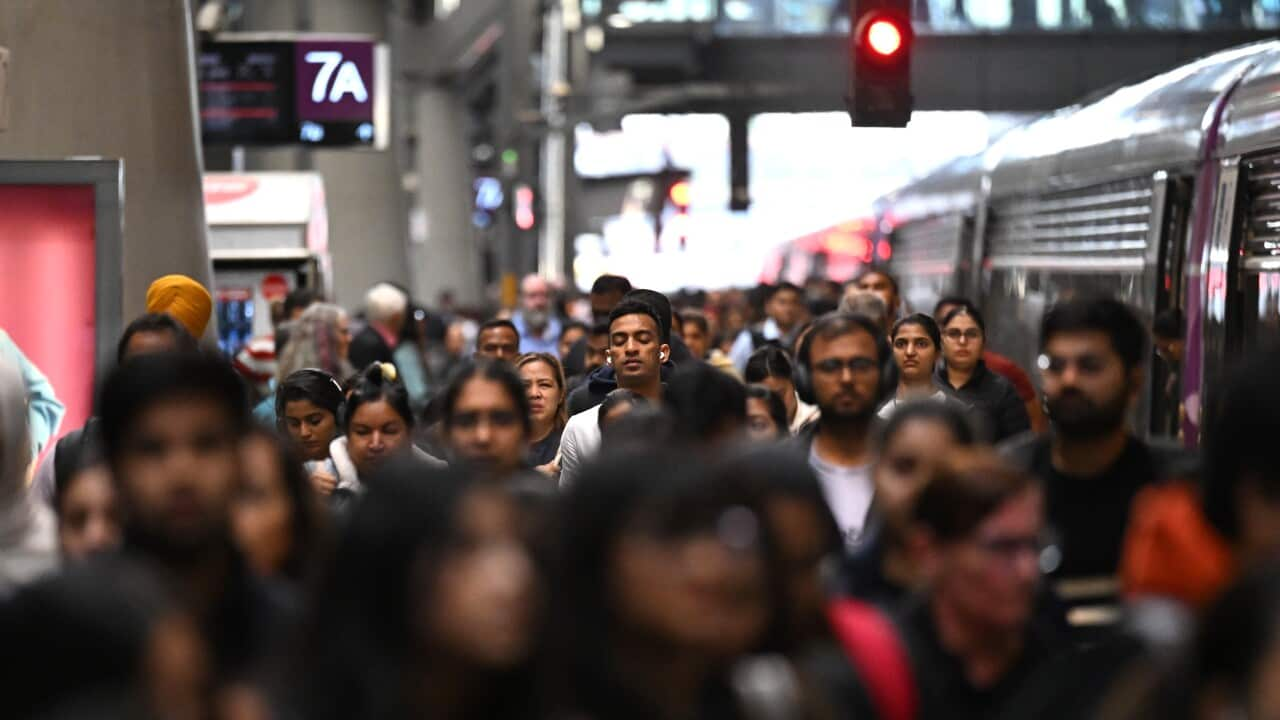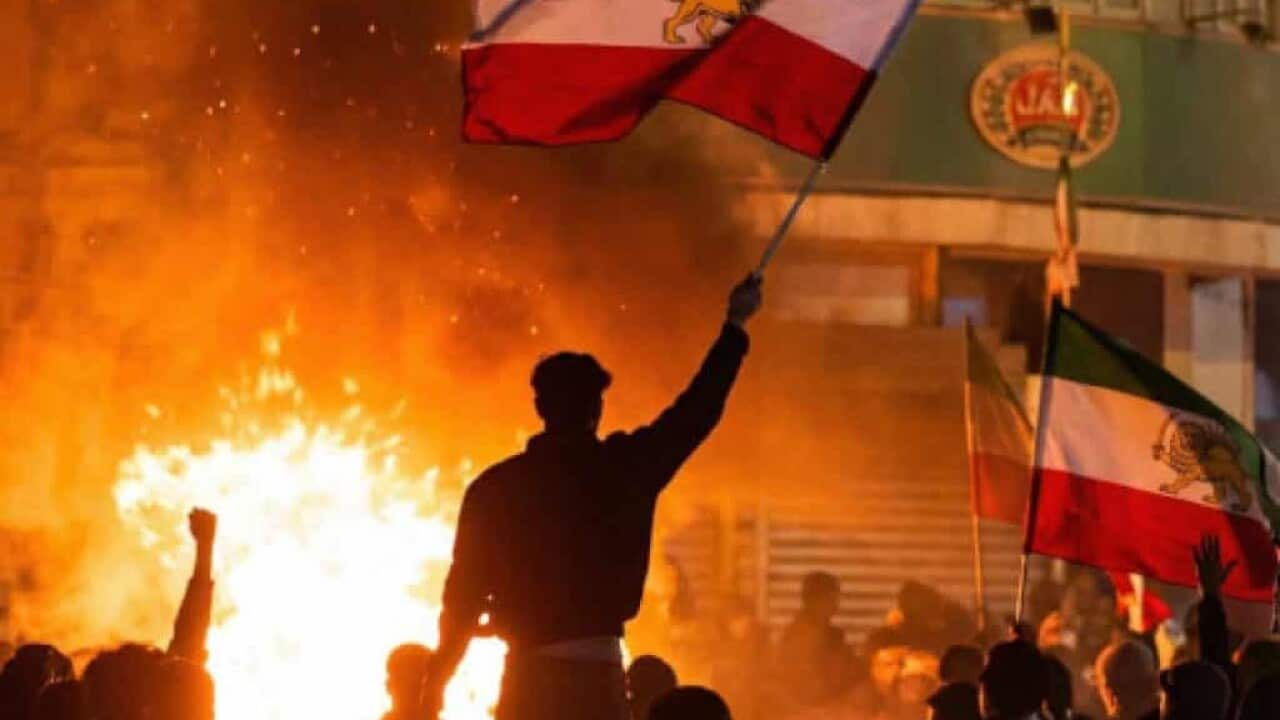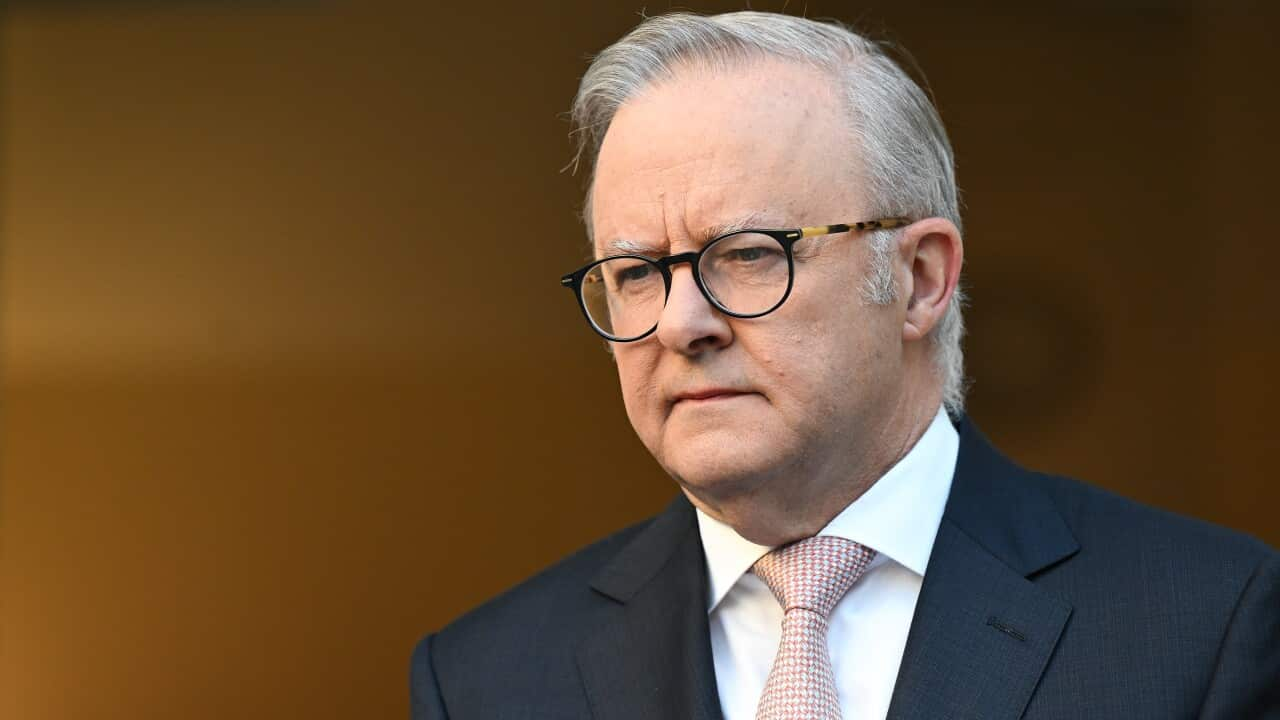Listen to Australian and world news, and follow trending topics with SBS News Podcasts.
TRANSCRIPT
"At 3 am we arrived at the Nova festival, full excitement. Within hours, everything changed."
That is Shaun Lemel, a survivor of an attack on the Supernova Sukkot music festival that was part of a larger raid on Israel by the Al-Qassam Brigades, the militant wing of Hamas, on October 7, 2023.
Shaun is at a rally in London to mark two years since the attack that ultimately killed 1200 people, with 250 others taken as hostages to Gaza.
There have been dozens of commemoration ceremonies just like it - including in France, and in Greece, where a remembrance event has been held outside the Israeli embassy.
But there have also been rallies organised by pro-Palestinian protesters, who are calling for an end to the war in Gaza.
That war was launched hours after the October 7 attack by Israeli Prime Minister Benjamin Netanyahu, who had vowed a swift response.
There are some Israelis who support the war in Gaza.
That support is visible in places like the village of Sderot [[STEH-rot]], long a major target of Al-Qassam rocket attacks as it lies less than a mile from the Gaza Strip.
Social media and mainstream media accounts note that the village features an observation hill where visitors have gathered since even before October 7 to witness Israeli bombings of Gaza, and which has become known to some as the Sderot Cinema.
But there have also been almost weekly demonstrations within Israel since October 7, calling for an end to the war and the return of the hostages.
One set of families has even set up a tent outside Netanyahu's residence in Jerusalem, vowing not to go home until the remaining hostages are retrieved safely.
A mid-July poll by the Israeli Democracy Institute suggests most Israelis want the war to be over, with 74 percent backing a negotiated end to hostilities and a return of the remaining 50 hostages in Gaza.
Some have even accused Netanyahu of sabotaging the peace process, dragging things out in order to solidify support among the far right factions that exist in his government that he needs to remain Prime Minister.
That is a view shared by others in the region, like Qatari Foreign Affairs spokesperson Majed Al-Ansari.
"I think we are dealing now with a leadership that is unhinged. We are dealing with a prime minister who believes that he can reshape the Middle East in his own image, which is an image of chaos."
The Israeli government for its part says it has a right to defend itself, accusing Hamas of using civilians as human shields and a front for the group's clandestine operations.
Such claims have done little to diminish international sentiment, which is increasingly firmly against the war in Gaza continuing.
In the two years since October 7, Palestinian authorities say more than 66,000 people have been killed in Gaza, the majority of whom are civilians, and thousands of others have been displaced.
Foreign journalists are not allowed inside Gaza, but aid organisations and Gazan reporters say there are now regular scenes where hungry and desperate Palestinians gather at charity kitchens like this one in Khan Younis, most of them children and women, jostling and shouting for a meal of pasta or rice.
This man, Yousef Theiab, says he has been forced out of Shiekh Radwan in Gaza City
“We don't have any money. We came from Gaza and can't keep up with the high prices in the markets, so we come to get any food, anything to eat.”
It's these types of scenes - and reports from the UN that Israel's actions amount to a genocide - that have prompted the pro-Palestinian demonstrations.
Valya Chalamovahas says she has joined in a rally in the Bulgarian capital of Sofia because she feels sympathy for their plight.
"Our society - and the world - need to hear that we stand with the Palestinian people."
A vigil for Gaza has also been held at Sydney's Town Hall as organisers challenge a New South Wales police decision to shut down the protest on the grounds of safety concerns.
That is also the argument being put forward by Sir Mark Rowley, the Metropolitan Police Commissioner.
The police have objected to a pro-Palestinian protest in London, also on the basis of safety, days after the deadly Manchester synagogue attack.
"The risk that the timing of that event sends a message which, whether inadvertent or deliberate, endorses antisemitism. I think that's a deep risk to community tension, which is my concern."
Richard Ferrer is the editor of the Jewish News paper in the UK.
He says incidents of antisemitism in the UK have risen since October 7, with the number of reported antisemitic acts last year the second highest in modern times.
"Since October the 7th, the temperature has risen astronomically. Thousands of attacks on the Jewish community, and the Jewish Community has always felt under pressure, at risk."
A similar trend has been observed in many other places, including Australia.
But officials in charge of Australia's Islamophobia Register say there has also been a rise in anti-Muslim sentiment.
The register's Sharara Attai has told SBS the rate of incidents are now five to six times higher around the country than they were before the 7th of October.
"We have seen a significant rise in the number of Islamophobic incidents that have been reported to us. There has been a 537 percent increase in the number of Islamophobic incidents reported to us compared to the pre-October 7, 2023 period."
Politics has also been shaped in particular ways in the post October 7 landscape.
Dr Sanam Vakil is the director of the Middle East and North Africa program at Chatham House in London.
Dr Vakil says Israel's militaristic approach has left Israel more isolated today than it has been in decades.
"Populations across Europe have very much shifted from being cautious, if not supportive, of Israel's military activities to now openly being critical, if not calling Israel's activities in Gaza genocidal. This has also spread to the United States, where Israel has had a long history of close relations and strong support across the American electorate. And today, polls very much indicate shifts taking place among younger generations of Americans, both in the Republican and Democratic Party."
There has also been growing support for a two-state solution.
Multiple countries stood up in the United Nations general assembly in September, announcing their preparedness to recognise a Palestinian state as a way to move that forward.
That included Australian Prime Minister Anthony Albanese.
"The Commonwealth of Australia recognises the state of Palestine. We have had in Australia a long-term position on a bipartisan basis of two states. One of those states of course is Israel, and the other is of course Palestine."
Back in London, Shaun Lemel says October 7 is a day that will never leave him.
"I saw people through fields searching for somewhere to hide. I saw people falling to their death. Terrorists chasing them. Chasing us."
Meanwhile in Serbia, this protestor - Miro Hirar - says the two year mark is a time to say enough is enough.
"I don’t really care about the politics side of it. For me, the important thing is that civilians stop getting killed."
